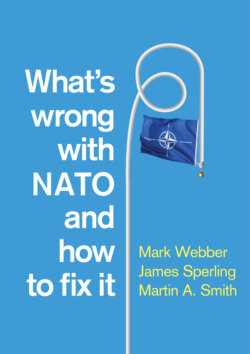Читать книгу What's Wrong with NATO and How to Fix it - Mark Webber - Страница 32
Conclusion: Walking and Chewing Gum
ОглавлениеNATO has staked its claim to relevance on an expansion of both its membership and agenda. Up to a point, that has worked. The Alliance has adapted rather than ossified and answered the demand for action in the face of multiple challenges. But it has also, as a result, taken on too much. As one official suggested in the margins of the 2014 summit, NATO ‘must be prepared for every challenge the world throws at us’; it must ‘multi-task, while remaining proficient at every task’.87 The intervening years have demonstrated the folly of such ambition. NATO’s position in Afghanistan has gone from bad to worse, its southern strategy has proven irrelevant to the conflicts in Syria and Iraq, and enlargement has foundered over questions of what to do about Georgia and Ukraine. The Alliance has become more impotent and more divided as its range has been extended. On some issues, it might have proven its worth (the military response to Russia’s annexation of Crimea could only have been effected by NATO), but the high tide of allied efficacy has seemingly been reached. If NATO is to avoid a future forever over-promising and underdelivering, it needs to take a hard look at its strengths and weaknesses, and to discriminate between the impossible and the achievable. That is the job of task discretion, a theme we turn to in Chapter 5.
